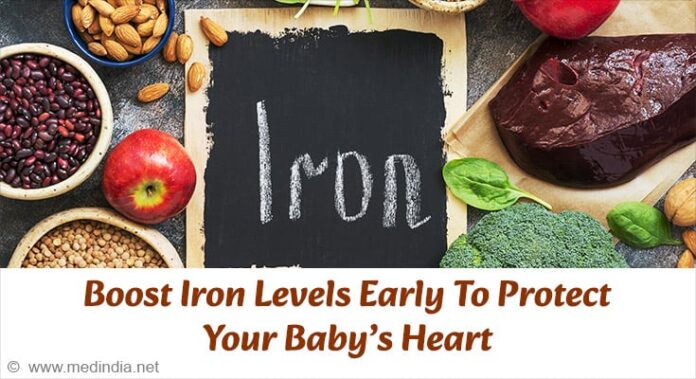A new UK study reveals that maternal anaemia in early pregnancy may raise the risk of congenital heart disease in babies by 47%, urging timely iron supplementation.
- Anaemia in early pregnancy increases the risk of congenital heart disease by 47%
- Around 36.5% of pregnant women worldwide may be affected by anaemia
- Iron supplementation before and during pregnancy may offer preventive benefits
Anaemia in pregnancy has long been associated with complications like low birth weight and preterm delivery. But new research from the University of Oxford has uncovered a startling connection that shifts the conversation—anaemia in early pregnancy may significantly raise the risk of congenital heart disease (CHD) in babies (1✔ ✔Trusted Source
Maternal Anaemia and Congenital Heart Disease in Offspring: A Case-Control Study Using Linked Electronic Health Records in the United Kingdom
Go to source
).
The Numbers Speak Loudly
According to the British Heart Foundation-funded study, mothers who were anaemic within the first 100 days of pregnancy had a 47% higher chance of giving birth to a child with CHD compared to non-anaemic mothers. Researchers analysed data from 2,776 women whose children were diagnosed with CHD and compared them to 13,880 matched controls. Among the CHD cases, 4.4% of the mothers were anaemic, compared to 2.8% of mothers in the control group.
Congenital Heart Disease Explained
CHD refers to structural abnormalities in the heart that are present at birth. Affecting 1–2% of live births worldwide, CHD is the most common type of
Why Early Pregnancy Matters Most
The human heart begins forming between weeks 3 and 8 of gestation, making early pregnancy a critical window. The researchers used electronic health records from the UK Clinical Practice Research Datalink GOLD database to focus specifically on haemoglobin levels in the first 100 days of pregnancy. Anaemia was defined using WHO criteria—haemoglobin levels under 110 g/L.
What sets this study apart is its precision: previous research had looked at anaemia during pregnancy more broadly, but this study zeroes in on early gestation, when the fetal heart is beginning to form.
“Because iron deficiency is the root cause of many cases of anaemia, widespread iron supplementation for women—both when trying for a baby and when pregnant—could help prevent congenital heart disease in many newborns before it has developed,” said Prof Duncan Sparrow, the study’s lead author.
A Global Public Health Concern
The study’s implications are vast. Around 24% of pregnant women in the UK and over one-third globally are affected by anaemia, most commonly due to iron deficiency. Despite its high prevalence, early detection and treatment of anaemia often go overlooked—especially before or during the first trimester.
Given the findings, researchers suggest that iron supplementation during the preconception period and early pregnancy might be a low-cost, minimally invasive strategy to reduce CHD risk. If confirmed in future trials, this could transform maternal health protocols worldwide.
Moving Toward Preventive Action
The authors emphasise the need for further research, including clinical trials on periconceptional iron supplementation, to confirm whether treating anaemia can directly lower the risk of heart defects in infants. Still, the strength of the current data provides a compelling case for clinicians and public health policymakers to act.
What This Means for You
If you’re planning to conceive or are already pregnant, ask your healthcare provider about screening for anaemia early. Simple blood tests and iron supplements could potentially reduce life-long complications for your baby.
And if you’re a healthcare professional, consider adding anaemia screening to your list of early prenatal checks.
The heart starts forming long before a mother feels the first kick—let’s make sure it has everything it needs to grow strong.
Reference:
- Maternal Anaemia and Congenital Heart Disease in Offspring: A Case-Control Study Using Linked Electronic Health Records in the United Kingdom – (https://obgyn.onlinelibrary.wiley.com/doi/10.1111/1471-0528.18150)
Source-Medindia


